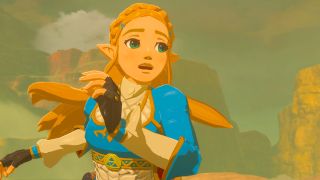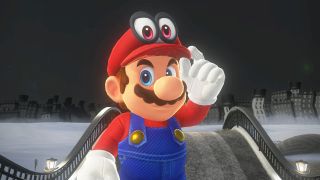"The big story here is how much better it is than Nintendo’s previous consoles" - what it's really like making games for Nintendo Switch
We speak to a variety of game makers to get their take on Nintendo's latest console
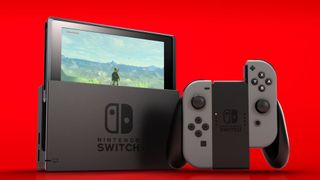
It's been eight months since the Nintendo Switch launched. And while its 2017 lineup of games initially looked sparse, the Switch has built up plenty of momentum, with a constant string of game releases, and current and upcoming support from large developers and indies alike. Typically, Nintendo systems struggle in terms of support, for myriad reasons, but it seems the tide has turned with Switch.
Why is that? To get a look at what it’s like developing for Nintendo's newest system, GR+ checked in with four game creators, all of whom recently ported games - or have ports forthcoming - to the Switch. We talked about what it is actually like bringing games to the Switch, and what Nintendo is getting right and wrong. These developers not only know what it is like working with Switch’s hardware, but also how it stacks up against previous Ninty consoles, and current-gen competitors like PS4 and Xbox One. And while this is still the Switch's first year, the creators seem pretty happy with how things are going…
Shovel Knight - to rumble or not to rumble?
Yacht Club Games is no stranger to Nintendo platforms. The developer of indie darling Shovel Knight, it has a history of supporting Nintendo, going back to Shovel Knight's 3DS and Wii U iterations. This year, it released two Switch titles in that series: Shovel Knight: Treasure Trove and Shovel Knight: Specter of Torment.
"I think the big story here is how much better it is than their previous consoles," David D'Angelo, a programmer at Yacht Club Games, says.
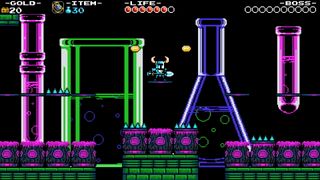
The process for getting its Switch releases over to the platform was, according to D'Angelo, quite easy. "It was one of the easiest consoles in a long, long time I think that we've had to bring our stuff over to. They're doing everything [right under] the hood: the SDK and stuff is really clean and nice and simple and up-to-date. It’s modern like you'd expect. I think a lot of old Nintendo systems maybe didn't follow that line of thinking," D'Angelo says.
He adds that most consoles can be spotty at release, but that wasn't the case for Nintendo's newest system. "Sometimes you get the development kits, and you can't even run the demos that they send you. This was like, 'Oh, everything just works! How is that possible?'"
"It was one of the easiest consoles in a long, long time that we've had to bring our stuff over to"
David D'Angelo, Yacht Club Games
According to D'Angelo, developing for Switch is easier than both 3DS and Wii U, and “it's a big difference when you have all the power in the world for something like Shovel Knight,” he says. Comparing Switch development not just against Nintendo's own past hardware, but against the other current-generation options - PlayStation 4, Xbox One, and PC - and D'Angelo has high praise for the hybrid console.
Sign up to the GamesRadar+ Newsletter
Weekly digests, tales from the communities you love, and more
"It's great," D'Angelo says. "I would say it's one of the best, for sure."
Ranking the systems, he added that PlayStation 4 - which launched in 2013 - is the benchmark, with the Switch following close behind. Xbox is the least favored on his list.
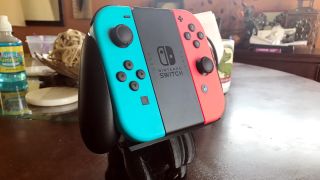
Unlike the past few Nintendo systems, the Switch also really doesn't have a gimmick. The Wii had its motion controls, the 3DS had glasses-free 3D, and the Wii U had the gamepad. The Switch, comparatively, is more straightforward.
"It's got lots of processing power, it's easy for Unity and Unreal to get on there really fast," D'Angelo says. That doesn't mean everything is perfect, however, and the trickiest part for the Shovel Knight ports came down to the Switch’s new Joy-Con controllers.
"We didn't really have any guidelines from Nintendo or anything for how pulling off a controller would work," D'Angelo says. "So you pull it off: does it automatically become player two? Do they switch it through the home menu that Nintendo builds? Or is that something that we should do [ourselves]? Like, how are most players going to expect that works when they actually pull [the controller] off?"
Yacht Club also didn't end up using the controller's HD Rumble, after not being happy with how it felt in Shovel Knight, even if they did have fun with it.
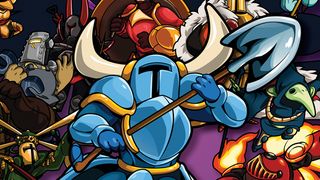
The Switch - which is running on an NVIDIA Tegra processor - does benefit from being similar to PC hardware. And the hardest part of development for Yacht Club Games is Lot Check, Nintendo's approval process.
"For us, it's always going through Lot Check. Having that in place and knowing how it works, and how many days it takes, and all that kind of stuff is a real headache. It’s sometimes a big burden on the porting process in itself, because you realize, 'Oh wait, I didn't know you had to expect the player could remove the disc while they played the game’ - that kind of thing," D'Angelo says.
Nintendo has, D'Angelo adds, made huge strides in the approval area, but are still ways away from the iPhone's app store. Overall, though, Switch development is pretty easy. "They really pulled out all the stops to try and improve," D'Angelo adds.
Overcooked - a second bite of the cherry
Ghost Town Games' Overcooked was initially released last fall, before coming to the Switch in July. However, it turns out that conversations about Overcooked coming to a Nintendo platform actually started not in regards to the Switch, but with the Wii U.
"We're big Nintendo fanboys so we've been hounding them for a while trying to get the game out on one of their consoles," Phil Duncan, co-founder of Ghost Town Games, says. "We'd been speaking with them about a potential Wii U release when the rumours about the Switch started to circulate. Then, when they made the official announcement, it just seemed like such a great match for our game that we leapt at the chance to bring it across."
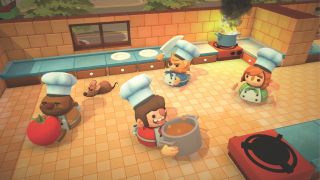
"We’re really keen on the experience of people playing together, and Switch's portability just opens up so many opportunities for that."
Phil Duncan, Ghost Town Games
Duncan mentions how it is always harder to port a game to a new console compared to consoles that are later in their life cycles - and that there weren't many other games using Unity on Switch when Overcooked came out - but that it is hard to rank any console above any other, with each of them having quirks. However, Duncan is full of praise for the Switch.
"From our perspective the big advantage is how it handles local multiplayer and how accessible it is to a broad audience as a system," Duncan says. "I think we all know the Switch is a different proposition to PS4/XB1 - Nintendo rarely fights on the same front as those other platforms. The portability on the other hand, is a big deal for us. We’re really keen on the experience of people playing together, and [portability] just opens up so many opportunities for that."
Overcooked was the team's first Switch title, which meant that there were a few hitches along the way. However, Duncan thinks the normal parts that take time to port - such as saving and player IDs - were more straightforward than other systems.

Duncan also mentions the hardest part about developing for the Switch: communicating to players which buttons to use in each controller mode (Joy-Con attached or not), and the technical issue of assigning player identity when switching modes.
"I see a lot of potential in HD rumble for future games, hopefully the other consoles will steal the idea."
Phil Duncan, Ghost Town Games
The team did implement one of the Joy-Con's features however, adding HD Rumble to Overcooked. "I really enjoyed this bit, and the technical side of it is pretty straight forward," Duncan says. "It all comes down to messing around with audio files and just seeing what works. To be honest the actual process of porting is pretty dry for the most part, this felt like a chance to actually do something creative and new. I see a lot of potential in HD rumble for future games, hopefully the other consoles will steal the idea."
The Switch’s launch version of Overcooked had issues, however, and the game was criticised for its framerate in particular. An initial patch came out in September - with a second one on the way - and Duncan is blunt about what led to the issues in the initial release.
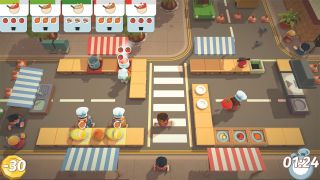
"We messed up there," he says "It’s difficult to admit but I don’t think we really looked as closely at performance as we should have for launch. In terms of the technical side the actual causes were quite unexpected. To get a bit technical by far our biggest performance problems [were] due to UI rendering actually. You can actually see in the first build of the game how things slow down when more recipes are added. There were also some small things to do with post screen effects and a few bugs to do with fires that I had to tone down a little too."
And while Nintendo systems historically aren't known for their strong third-party support - this was an area that the Wii U in particular struggled with - Duncan is hopeful that this is a trend that will change, at least for independent developers.
"I think Nintendo [has] made big efforts to make working on their consoles a lot easier for small teams such as us," Duncan says. "I’m hoping we’re going to see a lot of indie games appear on Switch as a result of this."
Disgaea 5 - the PlayStation 4 game that became even better on Switch
Western and indie developers aren't the only companies bringing games to the Switch. Nippon Ichi's Disgaea series hasn't been on a Nintendo console since the Nintendo DS, but that changed with the release of Disgaea 5 Complete earlier this year.
"This was actually my first time working with Nintendo hardware," Takehisa Matsuda, director, said in our translated interview. The same was true for most of the team. They only had around six months to work on the game, which caused some initial nervousness.
"I feel like we were overthinking things considering how smoothly everything went," Matsuda says, reflecting on the process.
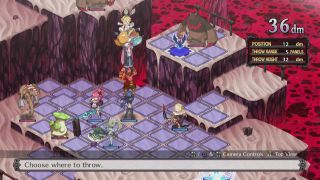
As most of the team had only worked on PlayStation, this led to confusion over the A and B buttons. Circle and X act differently in different regions (on PS4), and the Nippon Ichi team was unsure if this was also true for Nintendo systems. In the end, they put in the ability for users to decide what role they wanted the A and B buttons to take.
Of course, buttons aren't the only differences between the Switch and the PlayStation 4: there are power discrepancies, as well. But, Matsuda added that they didn't really let the CPU and GPU differences get in the way.
"In Disgaea’s case, there are only a handful of areas where the hardware’s specs might cause a bottleneck," Matsuda says. "We expected everything to work okay like it did on the PS4, and when we actually ran the tests, as expected, it ran without any problems."
"We knew that there would be some issues (such as animations that relied heavily on the PS4’s specs) but we knew this would be an issue from past porting projects, so we just accepted it as fact and planned to optimize these areas little by little," he says.
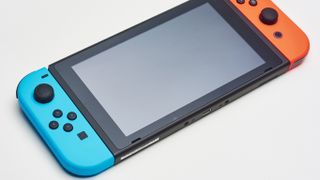
The team did have to take into account the Switch's different output modes, and decided to limit the resolution to 720p in both docked and handheld modes. Limiting the resolution, according to Matsuda, makes the game look better and also removed the necessity to tweak all of the game's roughly 500 skill and attack animations. "The game may even look better in handheld mode when comparing it to playing on a TV on the PS4," Matsuda says.
"The game may even look better in handheld mode when comparing it to playing on a TV on the PS4."
Takehisa Matsuda, Nippon Ichi
Porting Disgaea to the Switch was a smooth process - Matsuda credits the Switch's specs, Nintendo's support, and the rest of the development team - and the biggest issue was actually not with the game itself, but with its demo.
"Downsizing to a demo from the product version was really hard due to how the game was programmed," Matsuda says. "If the user really wanted, they could unlock many characters just in the first chapter, so we had to adjust the timing and set some limits as well as carefully remove small details in the game one by one."
And while Matsuda didn't give any specifics, it sounds like Nippon Ichi fans will have other titles to look forward to in the future. "I cannot disclose if we have any ports planned, but we do have plans of releasing more Switch titles," he says.
Doom and Rocket League - how easy is it to get AAA games on Switch?
Austin, Texas' Panic Button has not one, but two different Switch projects in the works, and is responsible for bringing both Rocket League and Doom over to the system. And similar to Yacht Club, the team feels that the Switch is an improvement over consoles of Nintendo's past.
"We have a long history developing for Nintendo hardware, and the Nintendo Switch has far better development tools than previous generations," Adam Creighton, Studio GM & Director of Development, says. "The tools are integrated with Visual Studio, which is new for this generation of hardware, and being able to write and debug code through VS is an enormous improvement."
But while Visual Studio might be a good step forward for Nintendo, it has long been a standard for other consoles.
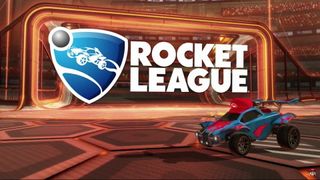
"Process and tools-wise, other consoles have arguably catered explicitly to third-party development for a longer period of time, over multiple hardware generations," Creighton says. "That said, we’ve seen the 'gold standard' in game developer support flip from one generation to the next, we are early in the Switch’s development cycle, and the SDK and tools themselves are constantly getting big improvements."
"We spend a lot of time trying to make sure the Switch version measures up from the lens of ‘does it feel like Doom?’”
Adam Creighton, Panic Button
Panic Button's vast familiarity (Creighton declined offering further details on Panic Button's long Switch development history) with the Switch made standing up (the technical term for getting a game running on a new system) games much easier than its experience developing early in other platform's lifecycles. The team's familiarity with Rocket League - Panic Button did the Xbox One version, as well as various other updates - also made that port easier than normal, as well.
And as for Doom, its scalable technology made it "more straightforward than maybe it could have been," but that's not to say that bringing Doom to the Switch has been a walk in the bloody park.
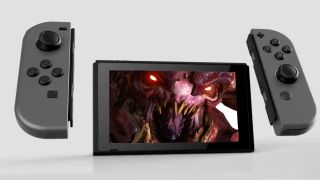
"It’s been hard," Creighton says. "Wicked hard. But I would expect it to be. This is a title that is so frenetic and action-packed and gameplay-pure that getting it to work correctly on the hardware is really important to us, and we spend a lot of time trying to make sure it measures up from the lens of ‘does it feel like Doom?’”
And for Creighton, the Switch offers him something both as a gamer, and as a developer.
"As a gamer, I like the hardware," Creighton says. "A lot. A lot. A lot. As a developer, I’m grateful to be bringing games people don’t expect to the hardware, and when they’re announced, people say 'Wha–?!' and then 'Oh, that makes total sense.' This might sound defensive, but I’m bummed some gamers focus on framerate or resolution, and don’t focus on, 'Is it fun?' or 'Does gameplay feel good?' I know we’re working hard to bring quality games to the hardware for which we develop. To make them enjoyable on the TV. To make them enjoyable on the go. I’m proud of my team. We’re working hard, we’re not cutting corners, and we’re not leaving anything on the table."
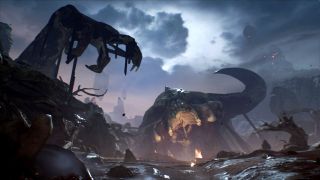
Of course, these are just four developers - out of many in the industry - but they do represent different types of games coming to Switch: Indie titles, Japanese-centric experiences, and AAA heavy hitters, all giving the Nintendo’s console some real depth in its release schedule this year.
Making the system easier to develop for is just one factor that will play into the Switch’s long-term success - but it’s a biggie. How this ease of use for creators shapes the rest of the Switch’s lifespan, well, we’ll just have to wait and see. This is just the first year, after all, but things are looking very promising.
Willie was once a writer and editor covering music and games. He is now the web content manager at Niantic for Pokemon Go. Willie is also a barrel-rider, Reliable Brave Guy (TM), and podcast host at 8 Bit Awesome.
Most Popular



